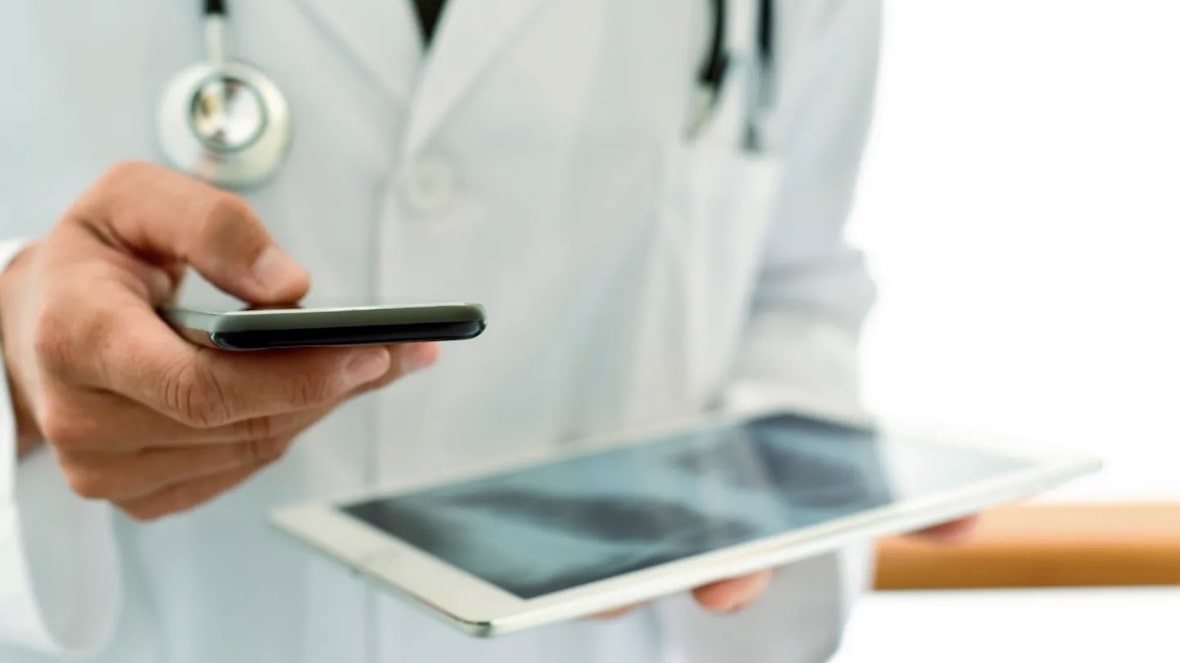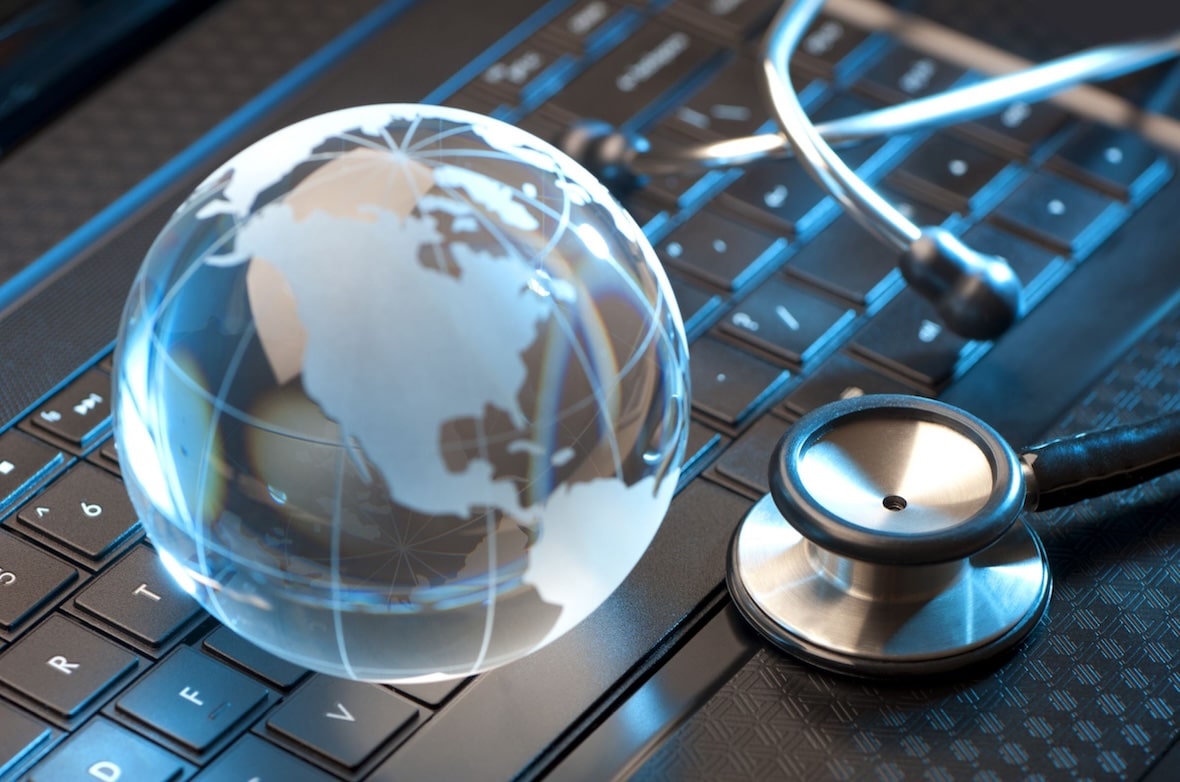Piccione recently described her user experience with the platform’s application that ICP’s physicians and care managers use the most: the Orion Health clinical application, dubbed “CareConnect” within the ICP network.
“We launched CareConnect in 2014,” said Piccione, “to more effectively manage patient data coming from several sources, like laboratory reports, radiology reports, hospital data, and consultant notes.”
Piccione’s learning curve was short. She quickly began using CareConnect for day-to-day clinical tasks alongside her practice’s EMR, which provides detailed information collected during a patient’s previous office visit but is often missing the vital information that’s generated from encounters which occur outside of Piccione’s office (e.g., specialist, ER, and inpatient visits).
“But that missing data,” said Piccione, “is always available to me in CareConnect. So not only am I constantly kept abreast of where my patient has been, who they’ve seen, and what their specialists have ordered, but I can also put the information that I find relevant into mypatient chart. Whenever a patient is hospitalised, they generate a lot of data, yet I don’t necessarily need all of that data. CareConnect gives me the ability to scan through the data quickly and see what’s pertinent and what I want in the chart. More importantly, in the event that, in the future, I do need something from that original data set, I can quickly find it in an easily accessible place.”
A More Complete and Customisable Clinical View
Seamless accessibility is just the beginning of the conveniences that CareConnect offers Piccione. The portal’s user-defined notification system, which gives each care giver the ability to specify the alerts they wish to receive, allows Piccione to review her patients’ lab, pathology, and radiology results as soon as they’re made available. She is also alerted to her patients’ hospital admissions and discharges via secure text messages pushed directly to her phone.
“When I log into the portal on Monday morning,” said Piccione, “I may be met with a message that Mr. Smith’s lab results are now available. When I’m home on the weekend, I might receive a text message that Mrs. Jones has been admitted to the ER. Either way, I’m always aware of what’s happening with my patients.”
While that may sound like a sure-fire recipe for notification fatigue, it’s proven not to be.
“It’s not an issue,” said Piccione, “because I can set up the alerts however I want them—which notifications I want and under what circumstances. This is particularly useful for my practice’s care coordinators, who manage the patient’s care across all of their specialists and throughout the inpatient and outpatient experience.”
One of the struggles Piccione dealt with prior to using CareConnect was that, as a PCP, she wasn’t always notified when one of her patients was admitted to the hospital. She wasn’t always apprised when they were discharged, either.
“It’s important to make contact with the patient right after discharge,” Piccione said, “and ensure that they’re scheduled to visit the PCP’s office for follow-up. We need to wrap up the hospitalisation by making sure that the patient and care givers understand the diagnoses and medications as well as how the care plan may have changed. We also need to confirm they are scheduled with the appropriate specialists for follow up and that they understand their timeline for recovery. CareConnect helps ensure that we—all of their providers—have the data we need to help the patient make a smooth transition.”
Navigating Patient Histories with Greater Speed
CareConnect also empowers clinicians and administrators to have total control of how the patient information is presented to the user on the patient-summary screen.
“I’ve adjusted my CareConnect settings so that when I log into CareConnect, the first thing I see is the patient’s encounter list,” said Piccione. “At the start of a visit, that’s what’s most important to me. The encounter list gives me a quick snapshot—I can see where they’ve been and who they’ve seen. And I can see specific details, too, like when they last visited the radiology department, were hospitalised, or were admitted to the ER.”
Piccione described how this is particularly helpful with patients who are new to her practice.
“You don’t have any of their records yet,” she said. “But with CareConnect, you can quickly get up to speed. I can see every lab test and every radiology result available, as well as consult notes, admission/discharge notes, and other transcribed documents.”
To illustrate further, Piccione described a recent new-patient encounter with a man who was complaining about a tingling in his hands and feet.
“That’s a very large differential diagnosis,” she said. “There are many reasons why the tingling could be happening. One thing I needed to know is whether he had a recent metabolic work-up. Are we looking at his thyroid? Are we looking at his sugar levels? Does he have anemia? By looking at CareConnect’s timeline view, I could instantly see which labs had been ordered, who had ordered them, and when the labs had been completed.”
And in an instant, Piccione was able to view the results of those tests.
“That was super helpful,” she said. “I immediately knew everything about his lab work and what I would need to do to complete his work-up. I could use the lab work that resulted from his oncology encounter to compare to the new lab work I had planned to order, but more importantly, I was able to facilitate that work-up for him without repeating any tests.”
This level of functionality is helpful not only when treating new patients, but also when treating poly-pharmacy patients with complex medical conditions.
“Patients who have multiple specialists,” said Piccione, “are, quite frequently, having the same tests repeated unnecessarily. Although nephrologists and cardiologists may have different reasons for ordering certain tests, many of these tests overlap. CareConnect puts all of that information in one place and thus helps to avoid duplication of testing. It also helps me direct my interview with the patient. If I see that they’ve met with someone in oncology since I saw them last, I can ask them to tell me about that visit.”
Piccione gave another example.
“Say I have a patient who says they’ve met with their cardiologist, and the cardiologist told them that their haemoglobin results were low, and that I, as the PCP, need to recheck it,” she said. “Unfortunately, I may not have been forwarded the results the cardiologist is talking about. But with CareConnect, those results are right there in the system, just waiting to be reviewed.”
The results are displayed in CareConnect’s document tree, a graphical representation of various documents.
“There are some patients who have over 200 laboratory results. There are some who have had multiple CT scans,” said Piccione. “With the document tree’s search function, I can search by provider, date, or test type, which I think is very helpful. CareConnect really helps you hone in on what you’re looking for and helps you find it easily. It doesn’t force you to scroll through a long list.”
Looking Ahead to Intelligent, Predictive Features
As a CareConnect power-user, Piccione is looking forward to the technology evolving, and has even identified features she’d like to see in future updates.
“I’m already so happy to be able to have all of my patient data in one spot. I find CareConnect a lot easier to navigate than our own EMR. For example, if I’m at home or I’m on call, and I need to get patient information for some reason, it’s much easier for me to log into CareConnect, which is a web-based system, as opposed to logging into my practice’s VPN and navigating through our clinic’s server to access our EMR,” said Piccione.
“But I cannot wait for the day that the data will speak to me,” she said. “Right now, I’m searching the data. But I’m really looking forward to a time when the system is actively talking to me and saying, ‘Dr. Piccione, here are 60 patients who have diabetes but haven’t been given the PPSV23 vaccine they’re due for.’”
Piccione believes that that functionality will make it easier to proactively reach out to patients who have become eligible for age-specific screening exams or treatments, like mammograms, colonoscopies, and immunisations.
“Additionally, I cannot wait until we have the ability to manage patients remotely,” Piccione said. “Take, for example, a patient who has congestive heart failure (CHF). I have no way of knowing that they’re in failure until they’re in failure in my office—maybe they’re short of breath or their legs are very swollen. I would have liked to have known, about ten days prior to their visit, that their weight had started to creep up a little bit. I am looking forward to a time when a patient can stand on a scale at home and transmit their numbers to CareConnect, which would then alert me that their weight has increased. It’s at this point that it would be ideal to intervene. I could tell them to increase their Lasix a little bit or to back off on the salt, and I could potentially help them avoid a dangerous exacerbation. Diabetics, asthmatics, CHF patients, and countless others with chronic conditions could really benefit from that level of functionality.”
Embracing Technology for Better Patient Care
After that look ahead, Piccione took a look back and reviewed her experience with Orion Health’s technology.
“I’ve really enjoyed working with Orion Health,” Piccione said. “It’s been a very educational experience. I think that people in IT don’t realise how technologically unsavvy physicians generally are, but Orion Health provides a very user-friendly, intuitive platform that even the least tech-savvy provider can easily use.”
Piccione explained how in her personal life, she’s long been comfortable relying on technology, with her phone alerting her if she’s late for a meeting before she even knows she has that meeting, and with it warning her about the traffic that she’s going to encounter on her way to that meeting.
But after her experience with Orion Health, Piccione has now become comfortable relying on technology in her professional life, too.
“Before 2014, when you came to my office to see me, the only medical data I had for you was that which I, myself, had put in your chart. Orion Health has changed all of that—now I have access to your medical data regardless of whether I was involved in a particular medical event or not. I’ve found that working with Orion Health has been not only helpful on a clinical level, but also on an educational level. The experience has opened my eyes to what technology has to offer me as a healthcare professional, and I am looking forward to translating that to better-coordinated, superior-quality patient care.”




